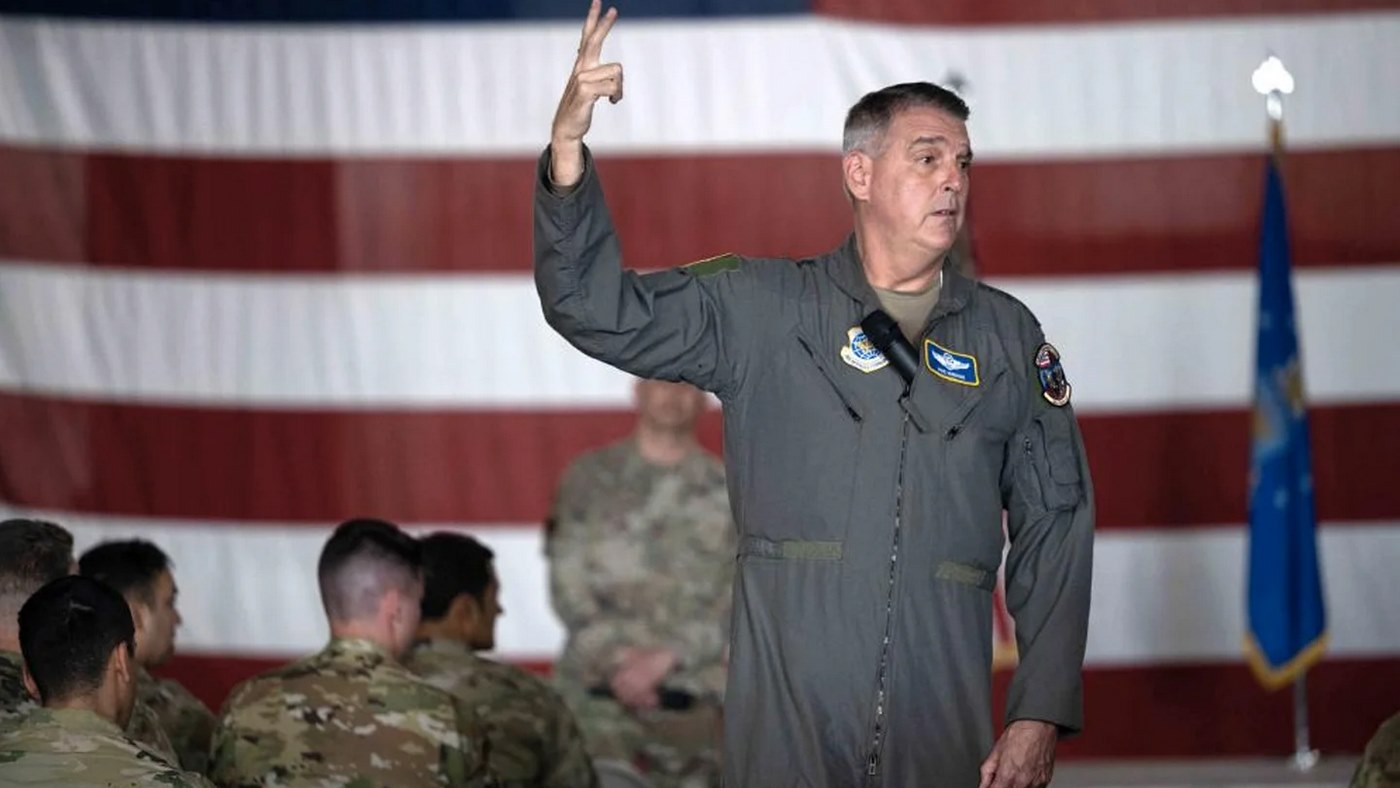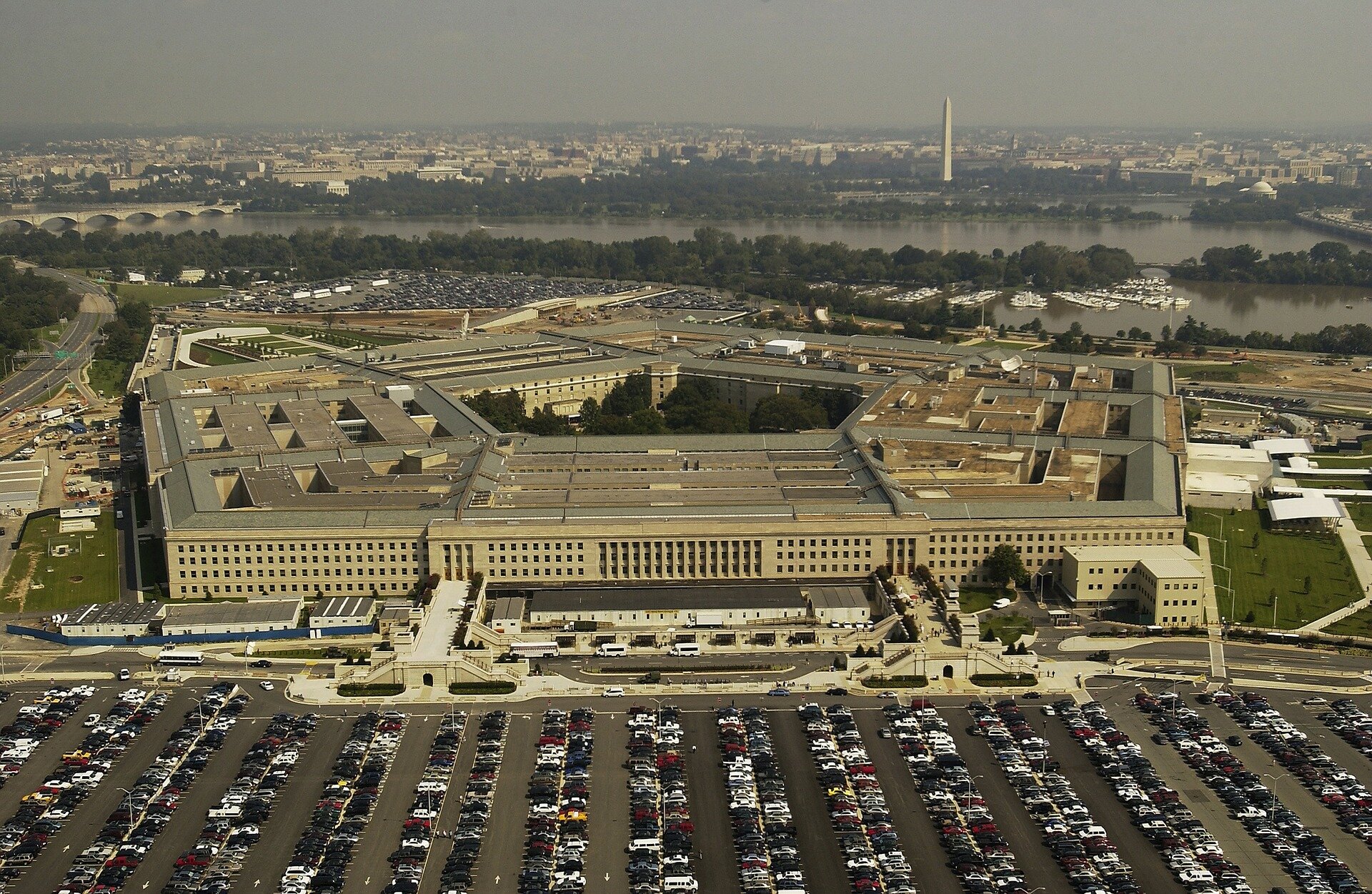Big spenders among the Air Force brass are keen to buy and build their way to a war against China—a war which hasn’t happened yet, which doesn’t need to happen, and which the US would almost certainly lose.
Sophisticated estimates of US entanglement in a conflict over Taiwan have predicted the US losing thousands of sailors, hundreds of planes, and half of her navy. However, that hasn’t stopped men like 4-star General Mike Minihan, who heads the Air Mobility Command, Sect. of the Air Force Frank Kendall, and Gen. Kenneth Wilsbach, Pacific Air Forces Commander, from stating that not only is the war almost definitely going to happen, but the US can win.
This ramp-up to fuller-bore rhetoric undoubtedly began with President Biden’s repeated declarations that the US would defend Taiwan if attacked by China, “because that’s the agreement we made”. He made this claim 4 times in 13 months between 2021 and 2022, despite the fact that no US-Taiwan relations agreement involves a defense guarantee.
In February of this year, a leaked memo by 4-star General Mike Minihan, who heads the Air Mobility Command of the Air Force, and who went on record as saying that “when you can kill your enemy, every part of your life is better… your food tastes better… your marriage is stronger,” was headed with his “gut” feeling that the US and China would be at war by 2025.
“I hope I am wrong,” he wrote in the memo, which was contradicted, albeit gently, by Sect. of Defense Lloyd Austin. “My gut tells me will fight in 2025”.
The rest of the memo is extremely aggressive, as he expects his personally issued orders will build “a fortified, ready, integrated, and agile Joint Force Maneuver Team ready to fight and win [a war against China] inside the first island chain”.
Secretary of the Air Force, Frank Kendall ranks among the Pentagon’s most severe China hawks, and at the Air & Space Forces annual Air, Space & Cyber conference, spoke openly about the urgent need to build the American military up to be able to win a war against China.
“Our job is to deter that war and to be ready to win if it occurs,” he said. “We’re all talking about the fact that the Air and Space Forces must change, or we could fail to prevent and might even lose a war. China has been building a military capability specifically designed to achieve their national goals and to do so if opposed by the United States”.
Thousands of miles away in the Philippines, Air Force contractors are clearing tropical jungle on remote islands for the purposes of establishing a “hub-and-spokes” network of airfields and other installations in case of a war with China.
“A year ago we had fewer options for hubs and spokes than we do today. And so it’s slower than I’d like it to be, but it’s still expanding and every single additional airfield that I can operate from is another—in a contingency or crisis or a conflict—is another airfield that China has to put into their targeting folders and, and then allocate resources toward them, which dilutes their ability to shut us completely down,” said Gen. Kenneth Wilsbach, Pacific Air Forces Commander at the Air & Cyber conference, according to Defense One.
War in words
Former Chairman of the CCP Deng Xiaoping, once lauded China’s peaceful approach to world affairs by saying that the Chinese people had invaded another country just one time in 1,000 years. While that was nonsense even excluding the period when China was ruled by the Mongols, in the 19th, 20th, and 21st centuries, Beijing exerted very little aggression on its neighbors compared with other regional powers.
In 1979 Beijing attacked Vietnam amid communist-bloc feuding. The resulting conflict may have caused 50,000 casualties among Vietnamese forces—at least 20 times less than the Americans in their war of containment. China also went to war with the United States in 1956 in defense of their treaty ally, North Korea, whom the US had attacked. Apart from border conflicts in the South China Sea, Tibet, and against India in the Himalayas, the death toll from Chinese aggression in the modern era pales in comparison to the United States, Russia, Saudi Arabia, Israel, France, and the UK.
In comparing them to the US for example, various presidential administrations have clearly announced the preparation for aggressive military operations in many cases: Korea, Vietnam, Iraq, Serbia, Somalia, Iraq again, Afghanistan, Libya, Pakistan, Yemen, and the entire North African Sahel before carrying those operations out, while additional wars by proxy have been publically stated as the policy of the US against Syria in Syria, and against Russia in Ukraine.
When the aforementioned Frank Kendall was accepted as Biden’s nomination for Secretary of the Air Force and Space Force, he said in a speech at the 2021 version of the Air & Cyber Conference that he was asked what his priorities were when he was nominated, and his answer was “that I had three; China, China, and China,” stressing that “we are being more effectively challenged militarily than at any other time in our history”.
All this direct rhetoric from the branch of the Armed Forces most involved in a hypothetical conflict with China may be enough, considering the US record on announcing the targets of their violence, to cause the Chinese to worry that, in fact, the US is actively seeking to fight a war with China, perhaps over Taiwan, but perhaps just because Air Force generals like Minihan and Wilsbach simply believe it’s an inevitable occurrence.
In analyzing the history of Chinese aggression, authors at the American Enterprise Institute published in The Atlantic wrote that Beijing tends to initiate the greatest degree of violence when it believes there’s a threat to its absolute control over its population and its borders, in contrast (it goes unwritten) to American aggression, which since WWII has been the greatest when it involves the least amount of risk to the American homeland and people.
This is not to suggest that a national war against China would pose no risk to the United States people and their homes, as China has a large and sophisticated nuclear arsenal perfectly capable of obliterating most life on Earth over the course of a strike on major US cities. However, as far as a war between the great powers, Wilsbach believes his small network of bases in the Philippines can win, if it fails to deter, a war against China—potentially because there’s so little threat to any American possession beyond his network and a number of other small installations on atolls, reefs, and islands.
The conditions are, therefore, optimal for at least an enormous military build-up in the near future, as the Air Force clearly believes it can deter or take on China with minimal risk to the homeland. For Chinese military planners on the other hand, they have been given plenty of reasons to believe the US has every intention of fighting a war against them. WaL



